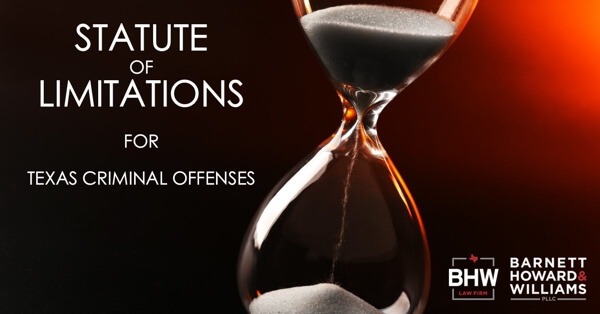Is Failure to Register as a Sex Offender a Sex Offense Itself?
 At his trial, Eric Putnam pleaded guilty for “failure to register as a sex offender,” a violation of 18 U.S.C. § 2250 that “carries a statutory range [of punishment] for supervised release of five years to life.” 18 U.S.C. § 3583(k). A Pre-Sentence Investigation Report (“PSR”), calculated Putnam’s punishment for supervised release at 15 years, treating his conviction of Failure to Register as an additional sex offense under section 5D1.2(b)(2). PSRs are reports used by federal courts to assist the court in measuring a defendant’s punishment under the US Sentencing Guidelines Manual. Courts have discretion in determining type and length of punishment, sometimes deviating from the recommendation of the PSR. For Putnam, the district court adopted the PSR, sentencing him to ten months imprisonment followed by a supervised release term of 15 years.
At his trial, Eric Putnam pleaded guilty for “failure to register as a sex offender,” a violation of 18 U.S.C. § 2250 that “carries a statutory range [of punishment] for supervised release of five years to life.” 18 U.S.C. § 3583(k). A Pre-Sentence Investigation Report (“PSR”), calculated Putnam’s punishment for supervised release at 15 years, treating his conviction of Failure to Register as an additional sex offense under section 5D1.2(b)(2). PSRs are reports used by federal courts to assist the court in measuring a defendant’s punishment under the US Sentencing Guidelines Manual. Courts have discretion in determining type and length of punishment, sometimes deviating from the recommendation of the PSR. For Putnam, the district court adopted the PSR, sentencing him to ten months imprisonment followed by a supervised release term of 15 years.
See the Fifth Circuit’s opinion in United States v. Putnam
Putnam appealed the 15-year term of supervised release, contending the district court erroneously treated his conviction for Failure to Register on the sex offender registry as a separate sex offense in and of itself. Because Putnam failed to object to the length of the sentence at the time of trial, essentially waiving his right to appeal the sentence on the merits, he must show (1) that a “plain error” was made at the sentencing phase of his trial, and, (2) that the “plain error” affected his substantial rights. United States v. Warren, 720 F.3d 321, 332 (5th Cir. 2013); United States v. Escalante-Reyes, 689 F.3d 415, 419 (5th Cir. 2012) (en banc). The “Plain Error Doctrine” refers to Federal Rule of Criminal Procedure 52(b) that permits federal courts of appeals to consider “plain errors” even though they were not brought to the district court’s attention at the time of trial.
Here, the government “concedes that a plain error [did] occur with respect to the Guidelines calculation for the length of…the supervised release term.” In earlier case law, the Fifth Circuit has held, “that failure to register under the Sex Offender Registration and Notification Act does not qualify as a sex offense under section 5D1.2(b)(2) of the Guidelines.” United States v. Segura, 747 F.3d, 323,329-31 (5th Cir. 2014). The Court agrees with the government and with Putnam—that a plain error did in fact occur at trial, and that the recommended sentence on the PSR should have included a supervised release from one to five years, instead of the range of five years to life.
Next, the Court explained, “Putnam has met his burden of showing that the [plain] error affected his substantial rights…[because] but for the district court’s misapplication of the [Sentencing] Guidelines, Putnam would have received a lesser sentence.” United States v. Mudekunye, 646 F.3d 281, 289 (5th Cir. 2011) (per curiam). A defendant meets the burden of showing that plain error affected his substantial rights when:
- the district court mistakenly calculates the wrong Guidelines range;
- the incorrect range is significantly higher than the true range; and
- the defendant is sentenced incorrectly. Id.
Here, Putnam fulfills all three requirements—the district court miscalculated his range of punishment; the range was significantly higher (three times the correct amount); and Putnam was sentenced incorrectly. Although the courts may use discretion in sentencing—sometimes giving a longer sentence to a habitual offender, or someone with a long criminal history—Putnam had only one prior, lesser conviction. The district court did not have a compelling reason to go above the correct sentencing guidelines.
Lastly, the Court determined whether the plain error affected the “fairness, integrity, and reputation of the judicial proceeding.” Courts “often exercise…discretion to correct error when it result[s] in a custodial sentence in excess of the correct Guidelines recommendation.” United States v. Hernandez, 690 F.3d 623, 621-22 (5th Cir. 2012). Here, “miscalculation of a supervised release” is [un]common…but [nevertheless] is a substantial restraint on liberty.” United States v. Segura, 61 F.App’x 119, at *1 (5th Cir. 2003).
In sum, the Court concluded that there was, indeed, an error in Putnam’s case that resulted in a sentence ten years above the correct Guidelines range, “satisfying all the plain error inquiries.” The Court vacated the sentence and remanded to the district court for proper sentencing.










